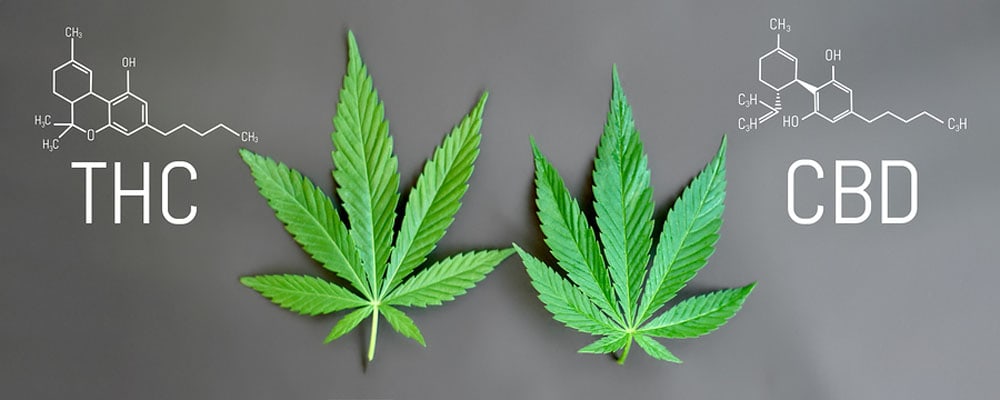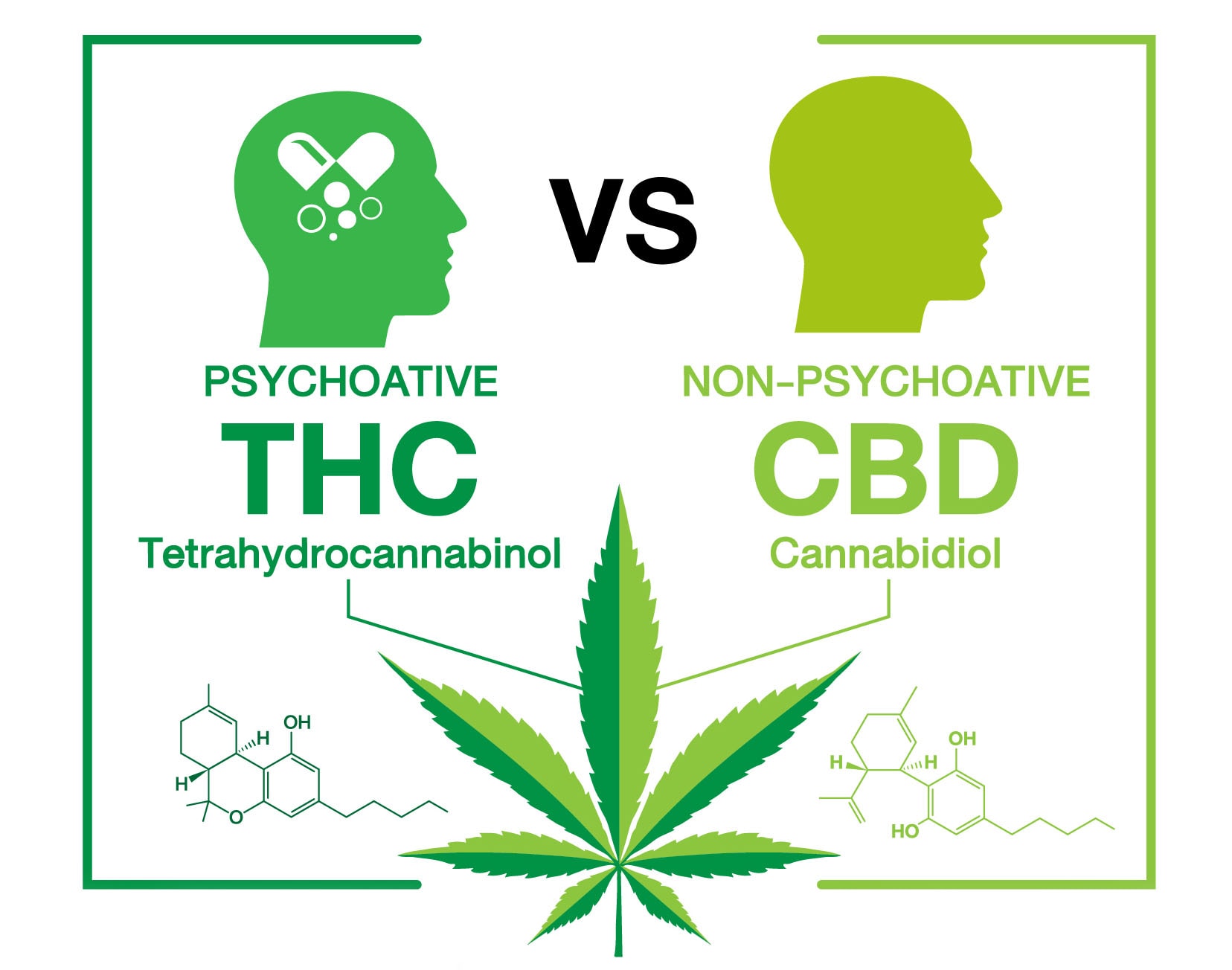Have a question? 06 70 73 89 02
🔞 Not for sale to under 18s
🔥 30% off EVERYTHING on the site with the code: LOVE!!! 🔥 ( except accessories and gummies)
Have a question? 06 70 73 89 02

Cannabidiol (CBD) and tetrahydrocannabinol (THC) are the two natural molecules most present in Cannabis Sativa L. (Hemp).
Although these are the most prevalent, they are only a fraction of the many (probably 200) compounds found in the cannabis plant.
> Cannabidiol is not classified as a substance in its own right (only as a compound of cannabis extracts). In Europe, CBD is extracted from hemp. Hemp is a legal variety of Cannabis Sativa L containing less than 0.3% THC. Unlike illegal cannabis varieties, which contain much higher THC concentrations. CBD, like THC, exists in the form of flowers, oils, crystals, extractions, candies etc...
> THC is the best-known psychoactive component of cannabis, responsible for altering consciousness: stoned, high, it makes you feel "high".
When we talk about the recreational use of cannabis, we're generally referring to a product rich in THC. (From 3% to 30% THC for weed, with an average of 11%, and from 7% to 85% for resin).
These two cannabinoids have an effect on our body, and more specifically on our endocannabinoid system (the system which maintains our body's equilibrium, such as body temperature, blood sugar levels, heart rate...).
However, they have different effects.
> Cannabis is generally prohibited in the EU. The exceptions are Portugal (possession of up to 25 grams is decriminalized and subject to a simple fine). The Netherlands allows consumers to possess and use cannabis at home, or in private spaces such as coffee shops. In Spain , too, the possession or consumption of cannabis is authorized only in private premises and "cannabis clubs". The cultivation of cannabis plants is authorized in private premises.
Overall, the use and possession of THC cannabis is punishable by penalties ranging from a reminder of the law to a prison sentence.
> CBD-based products are legal in the European Union and therefore legal in France. Provided they contain less than 0.2% THC and are made from authorized hemp seed.
"In France, there's no question of highlighting the differences between CBD and THC, or extolling the therapeutic benefits of the former. In France, cannabidiol cannot be considered a medicine, and must remain what it officially is: a dietary supplement."
Although legal in France as long as it contains less than 0.3% THC, CBD cannot be smoked as a joint, due to the pulmonary risks involved. To enjoy the effects of CBD, please turn to vaporizing or ingesting CBD in oil or capsule form.

Scientific studies have concluded that both CBD and THC have therapeutic properties.
According to the same studies, CBD could soothe inflammation, pain, mental disorders, gastric disorders, nausea (chemotherapy), migraines, depression and anxiety. Its properties could also be beneficial for muscle recovery in athletes, and alleviate a number of pathologies.
Some scientific studies claim that THC has effects on insomnia, appetite, muscle spasms (multiple sclerosis), glaucoma and anxiety.
The joint use of CBD and THC potentially produces more effects than separate use.
For example, in a study from California Pacific Medical Center, researchers found that the combination of CBD and THC produced greater antitumor effects when applied to breast and brain cancer cell lines than when used alone. The study also found that patients suffering from cancer-related pain had better tolerance to drugs combining THC and CBD.
The CBD molecule is generally well tolerated and does not cause dangerous side effects. As indicated by the WHO, it can cause :
However, these effects are fairly rare and do not last over time, even with heavy consumption. What's more, CBD can even mitigate the negative effects of THC.
Unlike CBD, THC can have a number of serious side effects, some of which may be irreversible.
Permanent side effects:
To date, THC, even in high doses, is considered to be of limited danger to adults. On the other hand, it is much more dangerous for adolescents, as it interferes with their neuronal development. THC can trigger latent psychiatric problems, such as schizophrenia, whereas CBD could be beneficial. Just like attention deficit disorder, with or without hyperactivity.